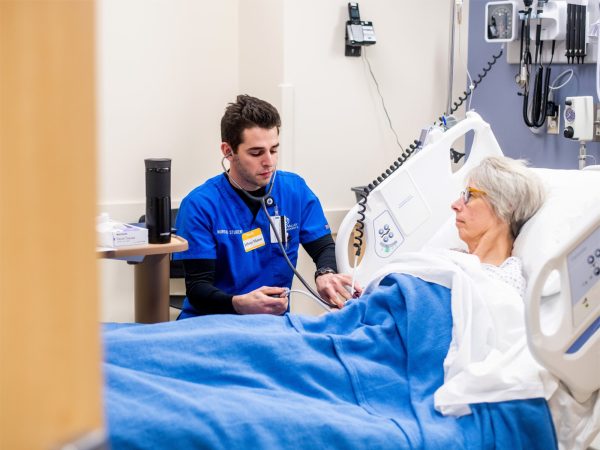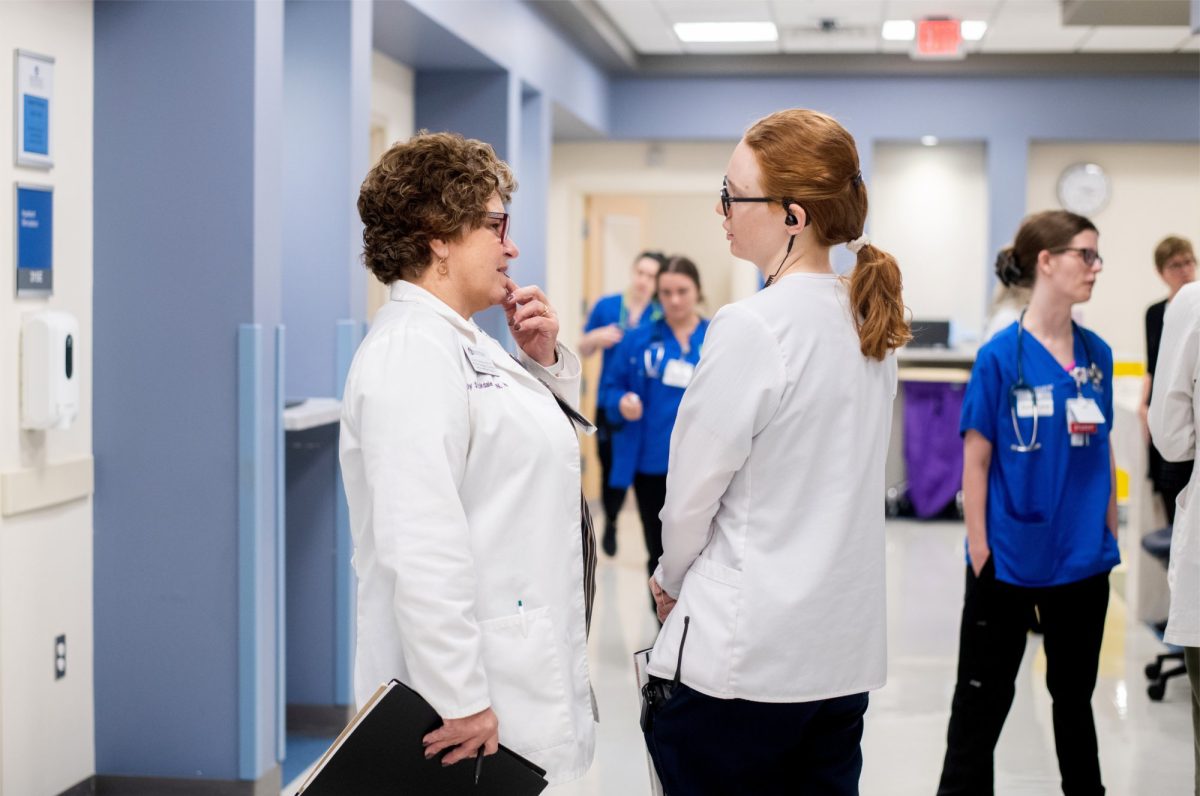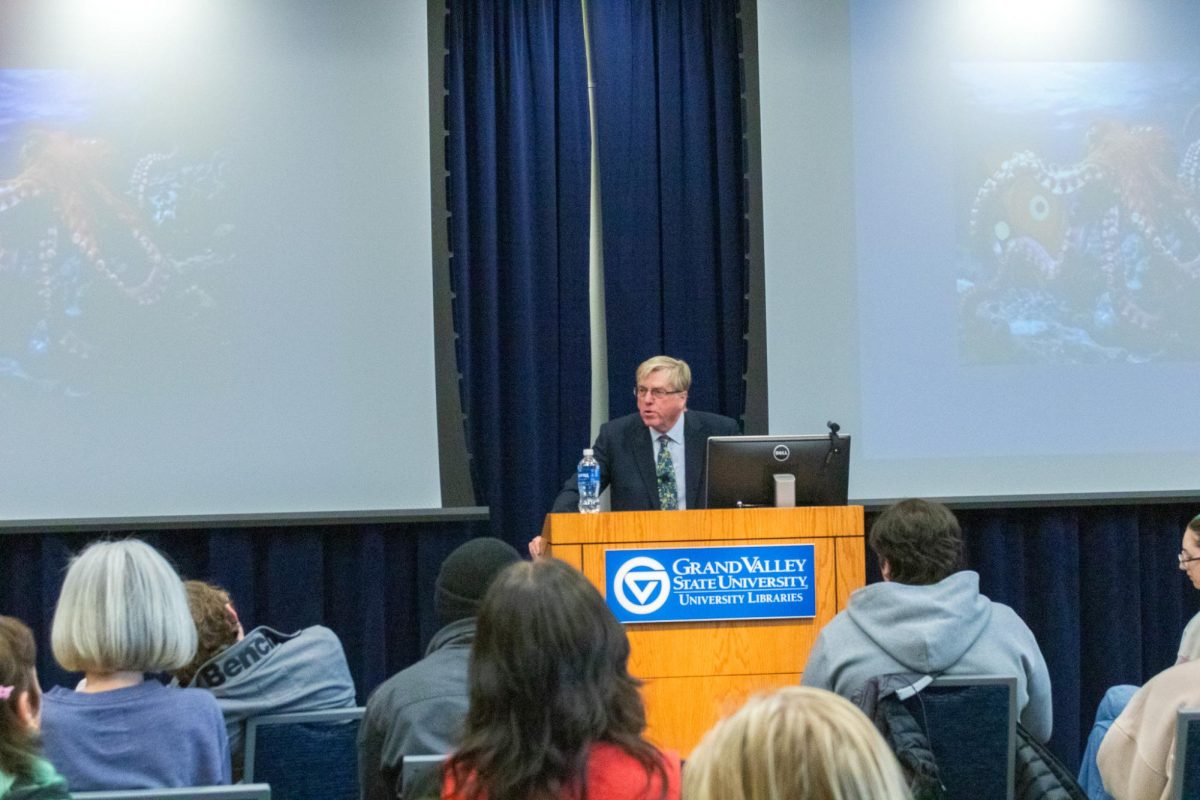A recent federal grant totaling 1.5 million dollars to Grand Valley State University’s Kirkhof College of Nursing (KCON) is being used to create simulations of multi-patient work and prepare nursing students better for the workforce.
Traditionally, nursing students only have to interact with two patients at a time. These simulations are designed to add more patients for the students to assist, further reflecting the reality of fieldwork. The students work with faculty members and healthcare workers from Corwell Health System in simulations that mimic the stress of multi-patient work that nurses face.
Sherri Fannon, a GVSU Professor and Certified Healthcare Simulation Educator, said academics in KCON create “a safe learning environment where students can make mistakes.”
“So, because they’re going to be caring for three patients at one time, and they work closely with a faculty member from KCON during the event face to face or with a Corewell Coach,” Fannon said. “What will happen is that coach or that faculty member will work with those students throughout the day to work with their patients, so they’ll help them with not only prioritization but delegation, if they need a consultation what that might look like, or the system if they need help with procedures.”
High stress levels are a common thing in nursing and healthcare fields. According to the American Nurse Association, stress levels are very high among the nursing profession for many reasons, such as emotional and physical demands, and ethical and moral stress. This also results in many dropouts within the first year of work in the field.

The new GVSU simulations funded by the grant are designed to prevent this. Stress levels are so high for new nurses in particular because of a disconnect between academia practice and professional practice.
Through the simulations, students will learn how to prioritize certain patients if they are more sick than other patients. They will also learn consultations, delegation, and debriefing. These are all important skills for new nurses to know and help create skills to balance patient interactions.
“When we debrief them, that allows the student to reflect on what happened over the course of that five hours, and when I was caring for my patients, how did that go? If I (the student) did feel stressed, maybe we have a conversation about that and how to deal with it moving forward,” Fannon said.
Students will experience the multi-patient simulations at the beginning of the semester, before going into a “clinical immersion” process and then repeating the simulations at the end of their education before graduation. Fannon hopes repeating the simulation will make a difference in students’ confidence and will allow students to see their own growth.
“What we’re hoping is that because (students) will do it twice, they will see a difference between the first time and the last time,” Fannon said. “That last time will give them some closure on where they are at in the management of multiple patients. It’s kind of to launch them into their clinical practice, so to speak.”























